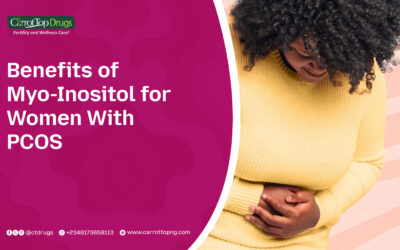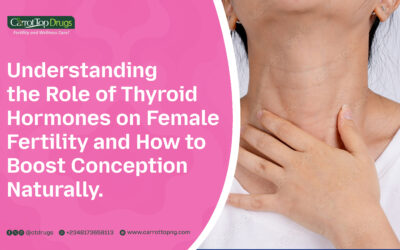Introduction
Pregnancy can be an exciting time. But it also brings some challenges. Morning sickness is common, but some women face a serious issue called hyperemesis gravidarum. This isn’t just regular nausea; it can really affect a woman’s health and the baby’s too.
It’s important to know what hyperemesis gravidarum is. This guide goes over what it is, what causes it, its symptoms, and how to treat it. The goal is to help women deal with this tough part of pregnancy.
What is Hyperemesis Gravidarum?
Hyperemesis gravidarum is a bad case of nausea and vomiting that happens during pregnancy. It only affects a small number of women. Unlike morning sickness, it causes constant vomiting. This can make a woman dehydrated and even lead to weight loss. The American College of Obstetricians and Gynecologists says it’s serious enough to need medical help.
This condition usually starts in the first trimester. If not treated, it can last throughout the pregnancy. Doctors think hormonal changes, especially higher levels of hCG, play a big part in this condition, but the exact cause isn’t known.
How Common is Hyperemesis Gravidarum?
Worldwide, about 0.3% to 2% of pregnant women get hyperemesis gravidarum. It happens more often in younger moms, first-time pregnant women, and those expecting twins or triplets. In some areas, culture and genetics may affect how often it occurs.
For example, in Nigeria, many women with hyperemesis gravidarum don’t get diagnosed correctly. This leads to more health problems for moms. Better awareness and healthcare can help improve these issues for affected women.
Who is at Risk?
Not every pregnant woman will get hyperemesis gravidarum. Morning sickness affects around 70% to 80% of pregnant women, but only a few experience the severe symptoms. Factors like age, weight, and general health can change the risk level.
Women who had hyperemesis gravidarum in previous pregnancies are more likely to have it again. Plus, those expecting multiple babies or with a family history of the condition are also at a higher risk.
Signs and Symptoms of Hyperemesis Gravidarum
Symptoms of hyperemesis gravidarum in women include:
- Severe nausea and vomiting
- Dehydration (e.g., dry mouth, reduced urination)
- Weight loss exceeding 5% of pre-pregnancy weight
- Fatigue and dizziness
- Poor appetite
- Rapid heart
Causes of Hyperemesis Gravidarum
Hormonal Imbalances
When a woman is pregnant, her hormones change a lot. One hormone called human chorionic gonadotropin (hCG) goes up. This hormone is made by the placenta and helps keep the pregnancy going. But sometimes, hCG gets way too high. This can cause severe nausea and vomiting, a condition called hyperemesis gravidarum. A study shows that women with high hCG levels are more likely to have this problem. It happens more often in pregnancies with multiple babies, since they produce more hormones.
Besides hCG, other hormones like estrogen and progesterone can make symptoms worse. Estrogen can slow down how the stomach works, leading to more nausea. Figuring out how these hormones act is key to finding better treatments. New medicines that help balance these hormones might help women feel better during their pregnancy.
Genetic Predisposition
Your genes can also play a big role in whether you get hyperemesis gravidarum. If someone in your family had it, you might be more likely to have it too. Some research has pointed out certain genes linked to this condition. This shows that family traits can impact how a woman’s body reacts to pregnancy hormones.
Some ethnic groups might have a higher chance of getting this condition as well. Knowing a patient’s family background can help doctors predict and manage symptoms better. Continued research on these genetic clues could lead to testing and better care for women who are at risk.
Psychological Factors
Mental health can affect hyperemesis gravidarum too. Stress and anxiety can worsen symptoms. It can be a tough cycle: feeling sick can make you more stressed, and being stressed can make you feel even sickier. Women with anxiety or depression before pregnancy might have more severe symptoms.
Getting support through counseling or therapy can really help. Studies show that when both mental health and physical symptoms are treated, outcomes are better. Adding emotional support to prenatal care can not only help with stress but may also break the cycle of worsening physical symptoms.
Environmental and Lifestyle Influences
What’s around you and how you live your life may also play a role. Things like toxins in the environment, such as pesticides or bad air, might trigger problems. These factors could combine with hormone and genetic risks. While research is ongoing, it’s clear that looking at the whole picture is important for pregnancy care.
Your habits, like diet and exercise, also matter. A poor diet or not getting enough nutrients can make nausea worse. Staying active can help your body handle pregnancy challenges better. Eating well and keeping up with some exercise might ease symptoms, but we still need more research to fully know how these factors work. By being aware of these influences, women can make better decisions about their health during pregnancy.
Treatment Options for Hyperemesis Gravidarum
Medical Help
When hyperemesis gravidarum gets serious, medical help is often needed. Doctors usually prescribe anti-nausea meds like ondansetron, metoclopramide, or promethazine. These meds help ease constant nausea and vomiting. They target the part of the brain that makes you want to throw up or calm the stomach down. It’s important for doctors to keep a close eye on these meds, especially in early pregnancy. They want to keep both mom and baby safe.
If things get worse, hospitalization might be necessary. Patients often get IV fluids to fix dehydration and balance electrolytes. This is important because throwing up a lot can lead to these problems. Some might need extra nutrition through IVs or feeding tubes if they can’t eat enough. These steps are crucial to prevent serious issues like malnutrition and weight loss, which can harm both mom and baby.
Home Remedies and Changes in Routine
Home remedies can help with mild to moderate hyperemesis gravidarum. Eating small snacks throughout the day instead of big meals can help. This way, your stomach won’t be empty, which can make nausea worse. Eating bland foods like crackers or plain toast can also help settle the stomach.
Avoiding strong smells, spicy foods, and certain places is key, too. Pregnant women can be extra sensitive to smells, and they can make nausea worse. Drinking enough water or electrolyte drinks is super important since dehydration can make the nausea feel even worse. These little changes can really make a difference in how you feel each day.
Nutrition Support
Getting proper nutrition is super important when dealing with hyperemesis gravidarum. Supplements like vitamin B6 and ginger can help ease nausea. Vitamin B6 is often the go-to choice because it’s safe and effective for pregnancy-related nausea. Ginger can come in teas, capsules, or candies and can also help calm the stomach.
For women who are really struggling to get enough nutrients, seeing a dietitian could be a good idea. They can help create meal plans to make sure you’re still getting what you need, even if you don’t feel hungry. They can also take nutritional supplements like Evergreen Natal Care or Evergreen Natal Care Plus which contains all the nutrient that a pregnant woman needs. This helps support a healthy pregnancy and lowers the risk of complications like low birth weight.
Counseling
Talking to a counselor can really help women dealing with hyperemesis gravidarum. The struggles of the condition can lead to feelings of stress or sadness. Therapy can give tools to help manage these feelings and build coping skills. One effective method is cognitive-behavioral therapy (CBT), which helps women deal with the mental challenges of being sick for a long time.
Counseling also helps ease feelings of guilt or frustration when women can’t meet the usual pregnancy or caregiving expectations. By focusing on both mental health and physical symptoms, counseling can improve life quality for moms and their families during tough times.
Alternative Treatments
Some women might look for other ways to manage hyperemesis gravidarum, especially if they want to avoid medications. Acupressure and acupuncture, which come from traditional Chinese medicine, might help with nausea. For example, acupressure wristbands gently press on certain points thought to help with stomach issues. Some studies show they might work, but results can be mixed.
Conclusion
Hyperemesis gravidarum is a tough condition for some pregnant women. Even though not many women get it, it can have a big effect on their health and feelings. Spotting it early and treating it well can really help both moms and babies do better. We also recognize that supplements like Evergreen Natal Care or Evergreen Natal Care Plus helps to administer the necessary nutrients that a woman needs during pregnancy.
FAQs
- What causes hyperemesis gravidarum?
The main cause is high levels of a hormone called hCG during pregnancy.
- Can hyperemesis gravidarum hurt the baby?
If it’s not treated, it can lead to problems like low birth weight or early delivery.
- How do doctors diagnose hyperemesis gravidarum?
Doctors look at the symptoms, check medical history, and make sure nothing else is causing the bad nausea.
- Are there long-term effects of hyperemesis gravidarum?
Severe cases might cause issues like not getting enough nutrition or ongoing mental stress for moms.
- Can you prevent hyperemesis gravidarum?
You can’t always stop it, but getting care early can help lessen the symptoms and make things better.

















